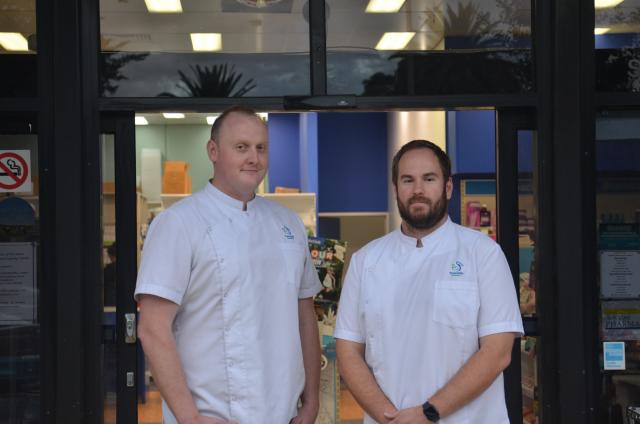Small town pharmacists say the community will be worse off under proposed changes to medicine dispensing by the Federal Government.
Tooradin pharmacist Brendan Green, who is on the committee of the Victorian Pharmacy Guild, said the 60 day prescribing policy would negatively impact local and independent chemists.
“The fear is these changes will affect the viability of the business and affect the ability for us to actually service that community, to continue to provide the level of healthcare that Australians deserve,” he said.
On Wednesday 26 April, Federal Health Minister Mark Butler announced the intention to allow millions of Australians to buy two months’ worth of medicine for the price of a single prescription.
The change is set to ease cost of living pressures, making hundreds of common medicines cheaper.
Once fully implemented, the 60-day prescribing policy will provide doctors with the option to prescribe a two-month supply of more than 320 medicines on the Pharmaceutical Benefits Scheme (PBS) to Australians with stable, ongoing conditions. The current dispensing limit is for a one-month supply only.
Mr Green said he understood why the change was proposed but said the lack of consultation by the Federal Government was concerning.
“There was an initial consult where basically the Department didn’t engage with the Pharmacy Guild in a productive manner and it was essentially stated this is going to happen whether you like it or not,” Mr Green said.
“What they’re talking of executing will have serious unintended health consequences and that’s going to be our smaller towns that cop it the worst because they are already under resourced with health.
“There’s a very real risk that the smaller communities like us, Garfield, Bunyip, Longwarry for instance – all of those businesses are going to be questioning if they can even remain viable, if this goes through in its current form.”
In an interview with the ABC, Federal Health Minister Mark Butler said he rejected the notion that the government did not properly consult the Pharmacy Guild.
“I mean, at the end of the day people make up their own minds about what sufficient consultation is,” he said.
Mr Butler said he didn’t accept it was “Armageddon” for local pharmacies but conceded there would be an impact on the bottom line.
“We recognise that we want to work with them to ensure that community pharmacy remain sustainable, but this is so overdue,” he said.
As a local pharmacist, Mr Green explained the pharmacy gets paid a dispensing fee and an administration fee for each 30 days of supply.
“What’s been proposed is it we will be given one dispensing fee and one administration fee for each 60 days of supply,” he said.
“So essentially it’s halving our profit.”
Mr Green said profits made from dispensing are reinvested in the pharmacy and therefore the community.
“I’ve worked here for nearly 15 years, since I was 18,” Mr Green said.
“We genuinely care about the community.
“I’m so proud of what we actually do. And I’m so proud of the team and my staff for what we’ve done and how we got through Covid-19 for example. We didn’t shut the doors for a minute.”
Mr Green is concerned the changes will mean changes to the services he can provide the community.
“If that revenue is cut, we’d have to review opening hours. We’ll have to review how and what services we deliver and when we do them, so we may still be able to do vaccination, but we may have to cut the staffing and cut out hours,” he said.
“This will also increase out of pocket expenses for services such as medication packs, vaccinations and deliveries.”
Federal Health Minister Mark Butler told the ABC there would “to a degree” have an affect on supply demand, but “it’s not as if every single patient or customer of a particular pharmacy is going to come in on the first of September and demand 60 days of medicines”.

















